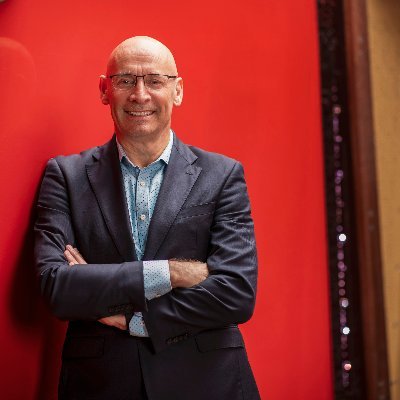The start of year three of a global pandemic, with a new variant and all of its ramifications, is heightening concern among our leaders, staff, students and partners in universities. It is highlighting how feelings differ from earlier years. It is as if our collective world is going through the stages of grief. The first stage was disbelief, and now we are in some kind of collective anger and blame phase. We all hope we will soon see a transition into acceptance and positive management responses.
It is influencing the confidence, and tiredness, among those working and studying in the sector. There is a sense of languishing and exhaustion even when we might be less physically active. We are seeing unpredictable and inconsistent rates and ways in which borders are opening and restrictions lifting, putting pressure on mid to long term planning, staffing and resources.
Our students are getting ready to re-engage with recalibrated and reset expectations. For those in a third and final year of studies, the prospect of now completing their full programs with disrupted, pivoted, online studies, is one that they might be coming to reluctantly accept. Trying to persuade them to show up to campus classes might be a stretch right now, even when we can make face-to-face classes available.
The staff have probably never felt more challenged. Having missed the long-promised refresh that this summer was meant to bring, they await another year of uncertain and continuously changing experiences, with the added pressure of vaccine mandates for some. There are a number of VCs concerned about how they are going to get their staff back on to campuses in the weeks ahead, and whether mandates are a good idea or not.
Leaders have never had it so tough. One VC was recently quoted as jokingly asking “who do we write to, to ask for COVID to be over?”. If only the powers of a VC’s written word and wishes could extend so far. Another described their current predicament as: “I have my hands totally full dealing with Covid-mandates, another restructure, building a new team, and transitioning to a future with less international student fee revenue. I have so little time to focus externally.”
And yet, VCs are now expected to show up again, for another year, and be the beacons of hope and optimism for their colleagues and institutions, and even these broader partners they work with and the communities they serve. It is certainly is a tough gig at the moment.
The external expectations on universities globally appear to escalate. Ever diminishing public funding, coupled with increasing expectations from Government and the broader public, and the underlying need to innovate and change, all continue to challenge the sector.
And after a summer of uncertainty and delay in ARC grant announcements, and new funding scheme openings, we now have the poisoned chalice in Australia of close to $2bn of investment into narrowly defined national research priorities, with the focus fully moved to commercialisation. Is that really going to help?
While in New Zealand, the team of 5 million is focusing on rebuilding communities, industries and the nation. The more conducive climate there appears to suggests that in New Zealand its universities are at least part of the solution.
For all of these contexts, a common theme is that closer collaboration is expected between universities and the outside world, be they employers, investors, end users or communities. It adds to the challenge for leaders to not only give hope, offer compassion, maintain optimism and build confidence for their staff. They have the looming challenge of maintaining morale in all of these ways, while leading their institution to seek new revenue streams and develop new business models, through partnerships and innovation.
This is a big ask. But staff have never needed more from their leaders. Being offered mere hope wears thin when the challenge endures and deepens. Offers of confidence and optimism might be misplaced, unless founded on steps that are taking to change the situation. What is clear is that somehow our leaders need to rise above the hope, and make any optimism authentic, by leading change and news ways forward, through energetic action.
Enabling energetic and hopeful action within the organisation when people are tired and angry might be one of the hardest leadership challenges of all. The urgent “all hands to the pump” phase of crisis management is well and truly over. Now is the time for everyone to accept and positively manage our futures.
Such an outcome requires all leaders to be personally resilient, endlessly optimistic, compassionate, empathetic, creative and ultimately focused on innovation and the future. It calls on VCs to engage beyond the dangers of groupthink with those on shared journeys, and find new wisdom in new crowds with external viewpoints.
The skills needed in university leaders have become heightened in these troubled and changing times. As beacons, they are more visible than ever, more needed than ever, and doing a job that has become more difficult than ever.
The start of the year might be the most important time to gather around campfires and pull together around our leaders.
These themes featured in our conversation on the first HEDx podcast episode for 2022 published last week that you can listen to here. From our respective positions in Australia and New Zealand we can see our universities being beacons in the even choppier waters ahead in year three of the pandemic. But only if we are innovative and all take energetic and purposeful action, firmly based upon the bedrock of hope and optimism.
Emeritus Professor Martin Betts, co-founder of HEDx.
Professor Jan Thomas, Vice Chancellor and President of Massey University and Chair of Universities New Zealand.
Do you have an idea for a story?Email [email protected]
 Campus Review The latest in higher education news
Campus Review The latest in higher education news


